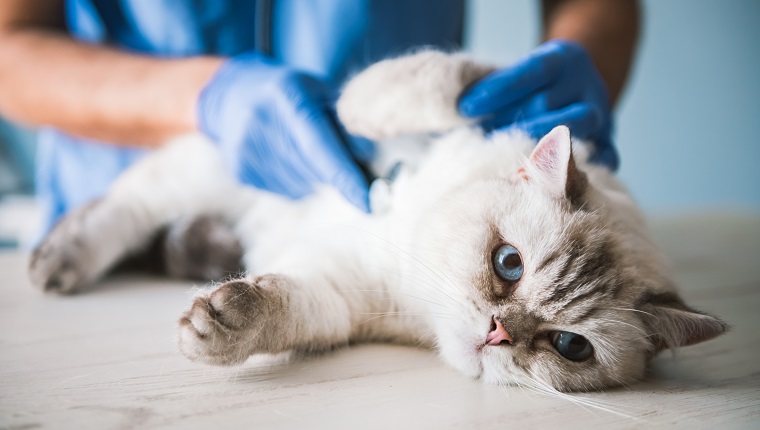Salmonella infection in cats is a zoonotic disease, which means it can also spread from cats to humans. It’s a type of bacterial infection that can cause a number of issues, including septicemia and gastroenteritis.
The clinical term for this type of infection is salmonellosis. If you see the signs of the condition in your cat, then you must get to a veterinarian for a proper diagnosis and treatment.
Here’s what you should know about the symptoms, causes, and treatments for salmonella infection in cats.
Symptoms Of Salmonella Infection In Cats
There is a wide range of symptoms that might appear in cats as a result of salmonella infection.
Some of the most common symptoms of salmonellosis in cats include:
In general, a cat suffering from salmonellosis might also become more withdrawn and lethargic when carrying out their usual daily routine.
Causes Of Salmonella Infection In Cats
The salmonella bacteria is transmitted to cats when they interact with an infected animal. Common interactions that result in cats contracting the disease include coming into contact with another animal’s feces or eating an infected animal.
As the bacteria can survive on surfaces, there’s also a chance that a cat can contract the disease from a contaminated litter box or from infected food.
Studies also show that cats on antibiotics have a higher chance of contracting the infection.
There are over 2,000 different strains of salmonella bacteria.
Treatments For Salmonella Infection In Cats
If your vet suspects your cat has a salmonella infection, they’ll likely order blood tests and stool samples to look for traces of the bacteria. Your vet will also pay particular attention to whether your cat is displaying any signs of gastroenteritis.
Vets treat many cats for salmonellosis on an outpatient basis. This often involves a course of antimicrobial medicine. As ever, always administer any medicines prescribed for your cat exactly as instructed by your vet.
In severe cases of salmonella infection, vets may consider additional measures aimed at re-hydration. They may also consider plasma and blood transfusions in the worst cases.
While treating a cat with salmonellosis at home, your vet might recommend changing their diet or even keeping the cat off food for a couple of days to avoid vomiting. In some cases, vets might also advise pet parents to stay away from infected cats as much as possible due to the zoonotic nature of the disease.
Has your cat ever had a salmonella infection? What advice did your vet give you? Let us know in the comments section below.









